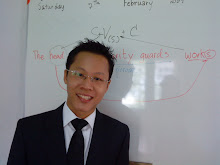Verb to be เรื่องหมูๆของคนไทยจริงเหรอ
It seems that the difficulty of how to use the verb to be of English has been underestimated by Thai people for a long time. In fact, in my opinion, it is the Thai people who have mistakenly overestimated their own ability to use the verb to be. As an English teacher, if you show up in a class and state that you will teach them how to use the verb to be, you will surely get boos and jeers because the students will think that you are going to teach something that is a piece of cake for them, something that they have been familiar with for ages. In fact, such an idea is a big mistake. Let me elaborate on this in the next paragraphs.
If the idea that “how to use the verb to be” is a piece of cake for Thai people and Thai students is not a big mistake for them, why is the question, “where are you come from?” used by a great number of Thai people? Surprisingly, if you try to tell them that this question is grammatically incorrect, they are unlikely to believe you and may further argue that a lot of people use it, and so do their high school teachers. One thing that might explain this phenomenon very well is that they may have been engaging themselves more in what Rod Ellis calls “item learning” than “system learning” (Rod Ellis, 2001). In other words, they might have been focusing on the use of it rather than the rule of how to use it. However, the question “where are you come from?” which seems to be used quite often by Thai people is only one example of many grammatically incorrect sentences used by Thai people that have to do with how to use the verb to be such as: I’m not understand; I’m graduated from….; Are you really want to…?; I will be, might be, must be, should be + Verb 1; I have been + Verb 3 (with no intention to use the passive form) and so forth. All of these mistakes basically come from the fact that they, in fact, do not know how to use the verb to be correctly at all. All that they think they know is just how to use “is” with the subject pronoun “he, she, it”; “am” with “I”; and “are” with “you, we, they”.
The purpose of this article is definitely not to offend Thai people who are learning and using English as a second language at all. Rather, as a Thai learner of English, who used to be really dumb at English, the writer just wants to raise this point, place it in the spotlight and make those who are learning English realize that using the verb to be is not just a piece of cake for them and that it is time to take a closer look at it. Some linguists have claimed that the most difficult grammar point of English is “how to use the prepositions”, and the second most difficult is “how to use the articles – a/an/the”. If that is the case, then let me put “how to use the verb to be” at the third.







สวัสดีค่ะ อ.ต้น
ตอบลบ